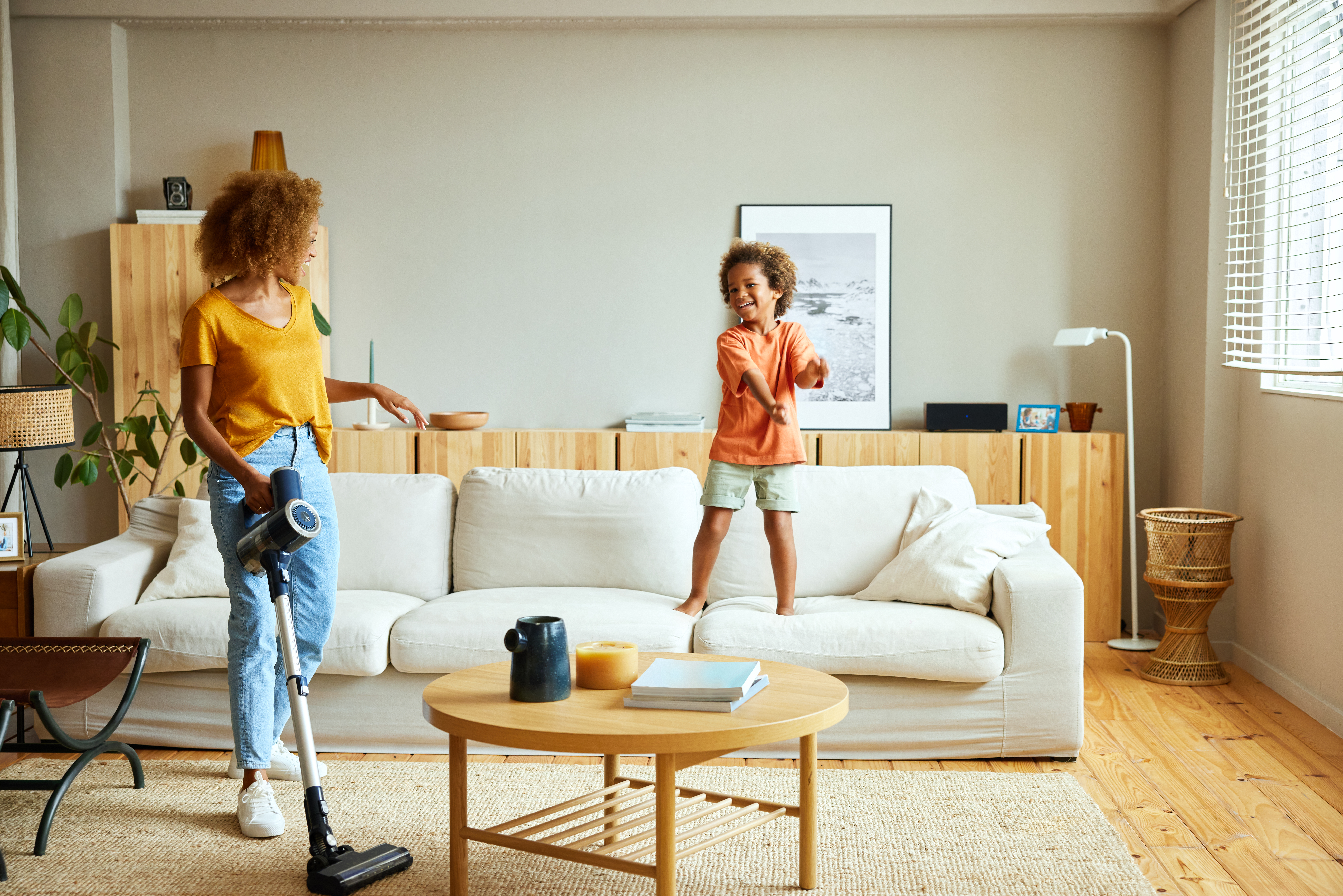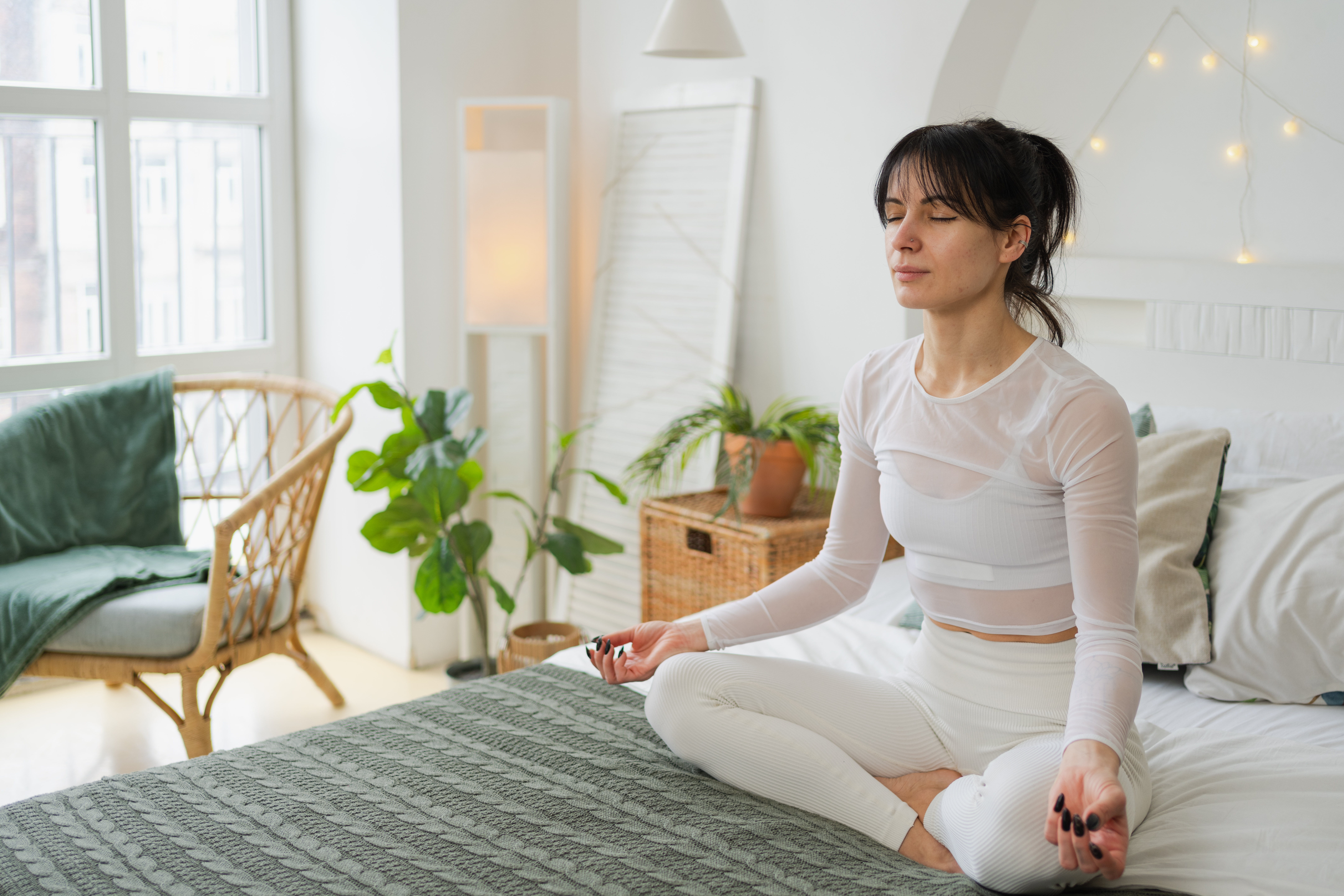Creating a healthy home is an investment in your well-being. From improving air quality to reducing exposure to harmful toxins, there are many steps you can take to create a healthier living space. In this article, we’ll explore five simple yet effective ways to make your home a healthier place to live. Learn more about creating healthy indoor air with Panasonic's award-winning ventilation products.
If you’re feeling sniffly during cold and flu season, it might be worth taking a look around your house. A healthy, clean environment is one way to help combat sickness, but there are other improvements you can make to make it less likely to fall victim to a virus. We asked home health experts to share easy steps you can take to safeguard your home from germs while boosting your immunity. Whether you sense illness coming on, or you just want to prevent it, these strategies will make your living space a whole lot healthier.
Improve Indoor Air Quality
“Improving indoor air quality is one of the top ways to improve our health at home,” says Michael Rubino, a mold and air quality expert, environmental wellness advocate, and founder of HomeCleanse. “The average person breathes 20,000 breaths daily and spends 90 percent of their time indoors. Ensuring these spaces have healthy air quality is an overlooked aspect of promoting our ongoing wellness.” Fortunately, there are several ways you can improve your indoor air quality.
Clean Regularly
One of the simplest ways to boost the air quality of your home is to clean. This removes toxins from building up in the form of dust and debris. Clean all surfaces in your home regularly, vacuuming and dusting. Use microfiber towels (which grab dust more effectively than other cloth types), eco-friendly cleaning products, and a HEPA vacuum cleaner to keep your space as clean as possible.
Another simple way to improve your home health is to take off your shoes upon entering, says Andy Pace, a Healthy Home Concierge and founder of The Green Design Center, a resource for homeowners and contractors looking to source products and designs that are healthy and green. Wearing shoes in the house can track all kinds of germs and undo a lot of the effort you put into cleaning your home. Have a designated mudroom or shoe area by your door to keep your shoes away from the rest of your living space.
Reduce Clutter
Cutting down on clutter is a great way to prevent dust and germs from building up in your home. Dust is one of the worst culprits for releasing toxins into air, and reducing clutter in your home cuts down on dust buildup because you've reduced the surface area on which dust would normally land. A less cluttered home is also easier to clean. “The less ‘stuff’ on surfaces throughout the home, the healthier the space will be and, more importantly, the healthier our air quality will be,” Rubino says.
Dust Often
Regularly dusting your furniture and items in your home will help keep your air cleaner and reduce your risk of getting sick. “Dust frequently,” Rubino says. “Contaminants like mold spores, mycotoxins, bacteria, pollen, pet dander, and more settle where dust settles. When this layer of particles gets disturbed, it will become airborne and can opportunistically enter our lungs through inhalation. The less dust there is, the healthier our air and we will be.”
Use Air Purifiers
Air purifiers can give your home and immune system an additional healthy boost. “Invest in air purifiers with the technology to eliminate contaminants from the air,” Rubino says. “A whole-house air purifying system is a great option to help avoid space restraints from many smaller machines.” Look for purifiers with HEPA filtration systems to remove as many unhealthy substances from the air as possible.
Regularly Change Air Filters
Change your HVAC filters regularly. Dirty air filters won’t be able to screen out airborne contaminants, allowing them to circulate back into your home. “Schedule bi-annual HVAC maintenance,” Rubino says. “As the home's 'lungs,' it’s important to ensure these machines operate correctly and are not contaminated with microbial growth.”
Keep Humidity Moderate
When it comes to humidity, there is a sweet spot that is not too moist and not too dry for optimal health. If you live in an arid area or have unstable humidity, consider getting a humidifier for your home. “One of the first and best steps to improving air quality in the home is to keep the home humidity below 50 percent to lessen the chances for mold development,” Pace says.
Use the Right Cleaning Products
Quality cleaning products can help you stay healthy while enjoying your indoor spaces. To keep your immunity up, clean with microfiber towels and eco-friendly cleaning products. Use anti-bacterial wipes and cleaners on areas that are touched and used often, such as door handles, faucets, fridge doors, and toilet handles.
Use a HEPA vacuum cleaner to help keep your air clean – it uses a High-Efficiency Particulate Air (HEPA) filter to remove at least 99.97 percent of dust, dirt, and other particles as small as 0.3 microns from the air. This removes allergens, pet dander, pollen, and mold from your air.
Make Your Bedroom a Sleep Sanctuary
Strengthen your immune system with a clean, peaceful retreat for rest. You can make your bedroom a sleep sanctuary by using blackout curtains and soothing scents like lavender to promote relaxation. Keep your bedroom dark and cool for optimal sleep.
“Bedroom flooring should be a hard surface like wood or cork so it is easy to keep clean and less likely to retain dust,” Pace says. Make sure your mattress is comfortable and firm enough for a good night’s sleep. Clean your bedding regularly, dust often, and use natural cleaning products. If you don’t have a HVAC filtration system, place an air purifier in your bedroom to improve the air quality.
Stock Your Fridge with Fresh Fruits and Veggies
Immune-boosting foods will help you stay healthy and weather cold and flu season. Cut back on highly processed foods and add more fresh fruits and veggies to your kitchen. Some excellent immunity-boosting foods include citrus fruits, green and leafy vegetables, red bell peppers, and broccoli. Fresh ginger and garlic are great to season meals and offer an additional immunity boost.
While you're at it, consider cutting back on alcohol (which studies have shown may weaken your immunity) so it might be worth clearing out the bar cart to reduce any temptations. And then swap in some immunity-boosting beverages instead.
Set Up an Exercise Space
Whether you have a yoga mat you keep rolled up in a corner, or a whole room you can use for working out, a home exercise space is a great way to improve your health and boost your immunity. Regular exercise helps boost your immune system and also improves your mental state, helping you to relax and sleep better.
This article was written by Marnie Kunz from Real Simple and was legally licensed through the DiveMarketplace by Industry Dive. Please direct all licensing questions to legal@industrydive.com.





